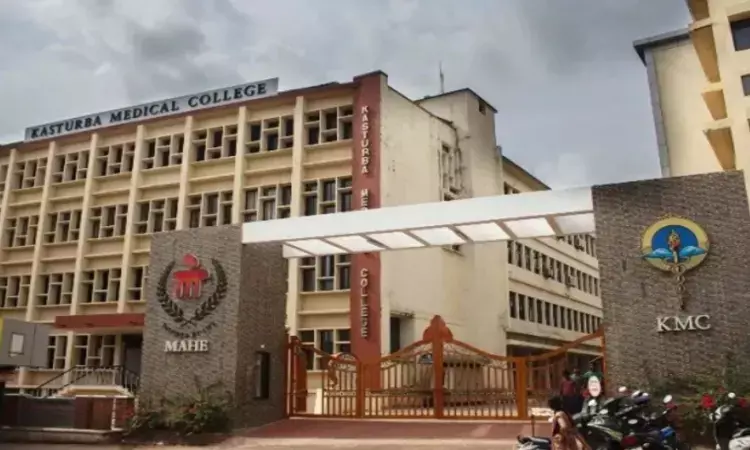- Home
- Medical news & Guidelines
- Anesthesiology
- Cardiology and CTVS
- Critical Care
- Dentistry
- Dermatology
- Diabetes and Endocrinology
- ENT
- Gastroenterology
- Medicine
- Nephrology
- Neurology
- Obstretics-Gynaecology
- Oncology
- Ophthalmology
- Orthopaedics
- Pediatrics-Neonatology
- Psychiatry
- Pulmonology
- Radiology
- Surgery
- Urology
- Laboratory Medicine
- Diet
- Nursing
- Paramedical
- Physiotherapy
- Health news
- Fact Check
- Bone Health Fact Check
- Brain Health Fact Check
- Cancer Related Fact Check
- Child Care Fact Check
- Dental and oral health fact check
- Diabetes and metabolic health fact check
- Diet and Nutrition Fact Check
- Eye and ENT Care Fact Check
- Fitness fact check
- Gut health fact check
- Heart health fact check
- Kidney health fact check
- Medical education fact check
- Men's health fact check
- Respiratory fact check
- Skin and hair care fact check
- Vaccine and Immunization fact check
- Women's health fact check
- AYUSH
- State News
- Andaman and Nicobar Islands
- Andhra Pradesh
- Arunachal Pradesh
- Assam
- Bihar
- Chandigarh
- Chattisgarh
- Dadra and Nagar Haveli
- Daman and Diu
- Delhi
- Goa
- Gujarat
- Haryana
- Himachal Pradesh
- Jammu & Kashmir
- Jharkhand
- Karnataka
- Kerala
- Ladakh
- Lakshadweep
- Madhya Pradesh
- Maharashtra
- Manipur
- Meghalaya
- Mizoram
- Nagaland
- Odisha
- Puducherry
- Punjab
- Rajasthan
- Sikkim
- Tamil Nadu
- Telangana
- Tripura
- Uttar Pradesh
- Uttrakhand
- West Bengal
- Medical Education
- Industry
KMC Manipal doctors successfully perform complex placenta accrete spectrum procedure on 31-year-old woman

Manipal: A team of doctors from Kasturba Medical College and Hospital Manipal successfully operated on a complicated case of placenta accreta spectrum using specialised techniques for the first time in Karnataka.
A 31 years old lady, in her second pregnancy at 34 weeks of gestation was referred to Kasturba Hospital Manipal with central placenta Previa with placental accreta spectrum. She had a previous child from caesarean delivery.
“Ultrasound showed placenta Previa and other findings suggestive of placenta accreta. Further evaluation with Magnetic Resonance Imaging (MRI) confirmed the findings. We decided to manage this complicated case involving a team of doctors from Interventional Radiology, Obstetrics, Paediatrics and Anaesthesiologists,” said Dr Shripad Hebbar, Professor and Head, of the Department of Obstetrics and Gynaecology.
After adequate preoperative counselling, the surgery was planned in Cath Lab. Initially, ultrasound-guided bilateral femoral artery access was obtained. Using a cobra catheter initially, a 6x40mm balloon catheter was placed in the internal iliac artery on both sides in deflated status, sequential cannulation and check angiogram of the bilateral internal iliac artery were done prior to the obstetric procedure by the interventional cardiology team which includes Dr Harshith Kramadhari and Dr Mithun Shekhar.
Later classical caesarean section with the extraction of the live baby followed by cord clamping was done. Following this bilateral internal iliac artery transient balloon occlusion was done. “We separated the adherent placenta manually from its attachment using finger dissection without any active bleeding from the placental bed. After completing the caesarean, bilateral uterine arteries were embellished with gel foam. The advantage of gel foam embolization is that it occludes all the collaterals to the uterus and bladder and minimises postoperative intra-abdominal bleeding,” he said.
The patient withstood the procedure well and was uneventful. Bleeding was moderate during surgery and only 2 pints of blood transfusion were required to compensate for the blood loss. The patient’s general condition was stable and she was shifted to ICU for elective extubation.
The femoral sheath was removed on the next day of surgery and the patient along with the newborn were discharged after 7 days in a healthy status.
“We performed a specialized procedure in a hybrid operation theatre (Cath lab) which had provision for a C arm and other equipment for arterial balloon placement and embolization. The average operating time for our case was one and a half hours. In this case we not only saved the mother from catastrophic events, but we also saved her uterus,” said Dr Mithun Shekhar, Consultant at Interventional Radiologist.
In placenta accreta, the placenta burries too deeply into the uterine wall & it doesn’t separate from the uterus after delivery, which can cause dangerous bleeding. It is a serious condition with a mortality as high as 7% resulting from torrential haemorrhage at the time of caesarean delivery. Other life-threatening condition include damage to the urinary bladder, disseminated intravascular coagulation, transfusion-induced lung injury, sepsis, renal failure resulting in multiple organ dysfunction and death.
Dr Avinash Shetty, Medical Superintendent, of Kasturba Hospital Manipal, congratulated the whole team for successfully handling this complicated procedure. He also said the public to make utilize this facility to save mothers and newborns and this surgery was done with specialized techniques for the first time in Karnataka.
Kajal Rajput joined Medical Dialogues as an Correspondent for the Latest Health News Section in 2019. She holds a Bachelor's degree in Arts from University of Delhi. She manly covers all the updates in health news, hospitals, doctors news, government policies and Health Ministry. She can be contacted at editorial@medicaldialogues.in Contact no. 011-43720751


